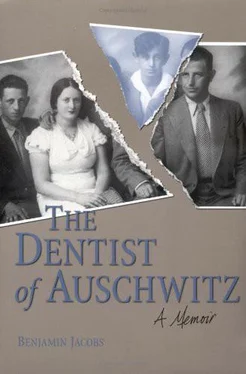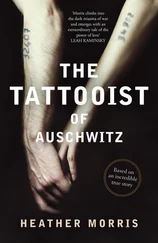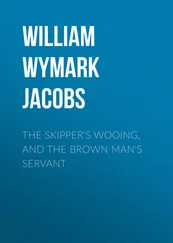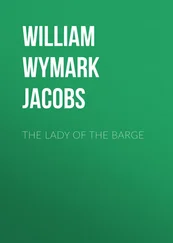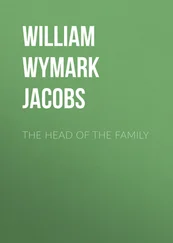Grandpa also taught me to play chess. “Chess sharpens the mind,” he would say. I knew that in the First World War he had received a citation for bravery from Polish marshal Józef Pilsudski, but Grandpa never wanted to talk about it.
Anti-Semitism in Poland was already a social disease before Hitler’s time. Although other minorities were treated fairly, Jews were made an exception. In the late 1930s in Poland, those who had previously sat on the fence joined Hitler in the Nazi’s racial policy. Even though we were born there, we were considered foreigners. For a Jew to be equal in Poland, he had to become a Christian first. While the Polish clergy didn’t advocate violence against us, they did not promote brotherly love either. My parents’ generation was willing to accept such an oppressed role in Polish society, but my generation found it difficult to live with. We were not Jews first and Poles second. We thought that if we adopted a new way of life and adhered to Polish customs, dress, culture, and language, non-Jews would tolerate us better, but nothing seemed to work. Nothing seemed more astonishing than the lie that the Jews in Poland lived in luxury.
Jews were verbally abused and often beaten in broad daylight. As long as a person was not visibly hurt, the police claimed that they could do nothing about it. The label on Jewish businessmen was handlarz, a term suggesting profiteer. Neither my brother nor I wanted to continue our father’s business, so we opted for a profession. Little did we know that whatever we became, the deep-rooted bias would persist.
In school our books ignored our history, our culture, and even our existence. The Dobra public school did not have a single Jewish teacher. Because of my given name, Berek, the non-Jews called me spitefully Beilis, after the Beilis Affair, in tsarist Russia, where a Jew by that name had been accused of ritual child killing. I was so embarrassed that before I attended secondary school, I changed my name to the Polish equivalent, Bronek.
In the mid-1930s the Farmers’ Union established farm cooperatives in Poland. Their purpose was obvious: to stop Jews from trading in farm products. The cooperative’s motto was “We, to Ours, for Ours.” This economic squeeze affected all Jewish businesses and, indeed, the entire Jewish population in Poland.
Attempts to set quotas at learning institutions were propagated. Banning shechita, kosher animal slaughter, was another overt act of anti-Semitism. Although Poland was close to war with Germany, Jews were the big enemy. Even the moderates tried to find ways to get rid of us. Taking a cue from the Nazis, the fascists demanded the expatriation of all Jewish people from Poland.
Excessive taxation was another of our dilemmas. Though we paid a parochial tax, Jewish schools and synagogues received no part of the money. I remember hearing Mama plead one day with a tax collector who came with a truck to take our furniture away to wait for Papa. He ignored her and called in his two helpers to take out our furniture. They threw our clean, freshly ironed clothes on the floor and stepped on them. Mama begged them to wait, to no avail. Suddenly lightning flashed, and thunder struck nearby. That shattered my mother’s nerves, and she trembled. “The lightning that may have struck someone innocent should have struck you,” she said, distressed, as she ran out.
Within weeks a trial against my mother began. She was accused of slandering the state. Twisting her words, the collector said that Mama had said that “the lightning should strike Poland.” His helpers supported this callous lie, and the judge convicted Mama and sentenced her to a year in jail. This falsehood created much concern among Jews, not because of the tax man’s cheap personal vengeance, but because the state had engaged in an act of overt anti-Semitism.
Jail for my mother was unthinkable, for she would certainly be killed by a patriotic zealot there. Since this was an election year, we hoped that eventually the new government would pardon people sentenced for minor political offenses, so Mama went into hiding, moving regularly from place to place.
Occasionally she dared to come home. On one such night, we heard a fierce knocking on the front door. “Open! Police!” a voice demanded.
“Wait,” my grandfather answered them, and he let some time go by.
When he finally opened the door, two police officers pushed in. “Where is Ester?” they asked Grandpa.
“I don’t know,” Grandpa answered calmly. Appearing unconcerned, he returned to bed, turned over, and seemed to go back to sleep. We knew that it wouldn’t be long before they discovered Mother. Each time they were to emerge from searching a room, I closed my eyes in fear that they would have found Mama and handcuffed her. To our surprise, however, they did not. They asked me, then, where my mother was. I bit my lip, and I said, “She is not here.” I wondered how well I lied. Nonetheless, they claimed to know that Mama was in the house.
One officer said to Papa: “Look, Wigdor, we know that Ester is here. Where is she?”
Papa told them that they were wrong: “She isn’t here,” he said matter-of-factly.
They finally left, still shaking their heads in disbelief. We too wondered where Mama was. She couldn’t have just vanished into thin air. Then Grandpa asked us to check to see if the policemen were really leaving. Assured that they were, he got out of bed, and we saw where Mama was hidden—in the bed behind her father! A little bit later Papa filled the wagon with hay and buried Mama in it. Then he drove her to a new hiding place. In time, after the elections were over, the hoped-for pardon came. Although Mama had escaped jail, she had served a personal sentence by hiding for more than eight months.
The world depression cast a long shadow over Poland, and it became hard to scratch out a living. To exacerbate matters, Papa had guaranteed bank loans for a German Junker, Herr Heller, and when he went bankrupt Papa had to make good on the loans. Herr Heller coerced Papa into guaranteeing a further loan, with the assurance that he would be repaid with the coming harvest. Papa, trying to rescue himself from his previous loss, agreed. It was a clever deception, for Herr Heller never paid us back and almost bankrupted us. We were deeply in debt, and the vegetables from my garden provided our dinner on many a day. As hard as those years were for us, though, many others in our village were worse off. Knowing a family was in want, those who were better off would help. I remember many times as a child that Mother sent me before the Shabbat with a gift package for the poor.
As grim as the situation got, we had nowhere else to go. The British mandate over Palestine presented great obstacles for our immigration there. The League of Nations debated resettling Jews in Birobidzhan in the Soviet Union or Madagascar. Even though support for Jews in Poland melted, the belief in nazism was not universal. All Christians did not believe in a world built on hatred and deceit, and many went on helping us. My own survival, as the succeeding pages will show, was also due to the help of many kind Christians.
In 1938 Hitler demanded from Poland the Corridor, a narrow strip of land that separated East Prussia from the German mainland. Marshal Edward Rydz-Smigy, who succeeded Pisudski in 1935, said, “Not one button will we surrender!”
CHAPTER III
The Blitzkrieg
Throughout the summer of 1939 the threat that Germany would invade Poland intensified. Since Dobra was only about 160 kilometers east of Germany, we had good reason to be concerned. My parents, who remembered the First World War, feared war more than the threat from the Germans. Their war experiences hung over them like a bad dream. I was not quite twenty, though, and I was more intrigued by war than scared.
Читать дальше
